#Japan Fes
Explore tagged Tumblr posts
Text
Hironobu Kageyama to perform at the first edition of Japan Fes in Belgium

Click here if the image doesn't refer you to the article.
#AVO Magaqzine#Japanese Music#Dragon Ball Z#Saint Seiya#Japan Fes Belgium#Japan Fes#Hironobu Kageyama#Anisong
4 notes
·
View notes
Text

lil painting of elise i started last year and finished just in time for her bday. i used to doodle elise a lot back in the day (i remember drawing her with her hair 'unrolled' all the way to her feet like rapunzel). there is something about the cheerful princess stuck in such terrible conditions that makes me think (also i was devastated about her end in birthright, which was my first choice when i played fates).
518 notes
·
View notes
Text

👁
#saramalacara#saramalacara:(#sarito#fe digital#heraldica#hyperpop#iglesia#inteligencia artificial#ripgang#trap#dios#japan#badfacesara#goat aura#trap argentino#hatsune miku
198 notes
·
View notes
Note
Hi! I’ve seen people people say that Dimitri speaks in an informal rude manner in Japanese so him being super polite in English is weird changes his character a lot, but I’ve also seen people say the localization is just fine. Could you clear up please? Thank you!
This ask has been in my inbox forever, and I know other ENG/JP bilingual FE fans have weighed in on this topic before. But exploring the nuances of Japanese formal vs. casual speech is always super fun, so I want to share my own thoughts too. There's always a chance there will be more to learn with each new person's input on the same topic. Plus, I discovered some things even I didn't expect! So, I'll still offer everything I have to say!
First, I'll explain the full background this ask is referring to. Japanese has 2 major distinct speaking styles - casual and formal. I was taught to call the formal style "distal" - because it is more about respecting distance in social standing than being formal specifically. But formal is the more common term, so I tend to stick with saying formal most of the time.
The distinction between casual and formal is made with pronoun choice, word choice, and other factors as well, but the fastest way to differentiate the two is to look/ listen for the use of desu and masu at the end of someone's sentences. Formal uses them. Casual drops them. This concept is entirely foreign to English speakers!
Dimitri drops desu and masu most of the time. His "I pronoun" is also ore, and his "you pronoun" is omae - both casual, blunt, and masculine choices. But does speaking casually to most of the cast make him rude?
Short answer is... no, not at all! There's 2 major reasons for this.
Reason #1 - the rules for casual vs. formal speech are a bit different in reality vs. fiction:
Partially, Dimitri speaks casually because he is showing his personality. He's got all those traits most standard FE protagonists share - he's strong, straightforward, and wants to connect directly on a personal level with everyone he meets. He tries to convince several characters that they can speak casually with him, because he sees people as people, and doesn't want social status putting distance between them.
Fictional characters generally speak more in-line with their personality more often, rather than following the socially acceptable speaking rules of the real world. (Though don't get me wrong - casual real Japanese people will speak casually in more circumstances than the average Japanese person.) This is simply the style that Japanese writers largely choose. And I think it is one of the great benefits of Japanese - anyone can start to pick up on a character's personality archetype almost instantly, thanks to their speaking style!
Reason #2 - Dimitri is a prince, making him of high social rank:
Here's the second nuance to this - it is absolutely standard for a superior to talk to their subordinates in casual style.
In modern times, this is shown in the workplace. Bosses and those in other leadership positions will frequently speak casually with the staff in a lower-ranking position than them. The president of the office I now work at is Japanese, and he speaks very casually with me - I have to be formal in response though, because he's at the top!!
But in the past, this would have been a distinction made between lord/ royalty, and those beneath them. Which is the case that is relevant in Fire Emblem's setting.
Dimitri can also speak casually without coming off as rude, because he is one of the highest ranking people across all of Fodlan.
-
Okay, so that's the answer in broad strokes - but let's get a bit more nuanced, go down Dimitri's support partner list, and confirm whether or not he always speaks casually!
Group #1 - Dimitri and the other citizens of Faerghus (8 other Blue Lions + Gilbert)
Dimitri has a multi-layered relationship with all of the other 8 Blue Lions. They are citizens of the country he is a prince of, therefore he is ranked very highly in social standing above them. But they are also his friends, classmates, and later, war allies; placing them on the same social level in that regard. So the way they speak to him comes down to a little bit of column A - personality, and a little bit of column B - which aspect of their relationship with Dimitri they feel is the "main" one.
Gilbert is also here in this category, as another person from Faerghus.
Dedue: Dimitri speaks casually, Dedue speaks formally, as they have a lord/ servant relationship. Dimitri wants Dedue to be a very close friend to him though, and wants Dedue to speak casually with him - this is a major source of tension in their supports. In the end, being able to mutually speak casually with each other and be friends, is a place they may reach one day. With other characters, Dedue speaks casually.
Felix: As royalty above Felix's noble house, Dimitri speaks casually. Felix is Felix, so he speaks casually too. I imagine he sees Dimitri quite literally as more of a wild boar than a human being, much less royalty.
Ashe: Dimitri speaks casually, Ashe speaks formally. However, pretty much the whole point of their supports is Dimitri attempting to get Ashe to speak casually with him.. Ashe tries in earnest to switch, but in the end sticks with speaking formally, otherwise he feels too uncomfortable. His view of Dimitri as his prince is too strong for him to let go and speak casually.
Sylvain: Dimitri speaks casually, and Sylvain speaks casually more often, but actually switches to desu and masu more than once. When a relationship is "in-between" higher/lower social standing and friendship, it's not uncommon for at least one person to switch back and forth between casual and polite speech, depending on which side of the relationship they are appealing to more at the moment. This happens in real life too as people shift from strangers, coworkers, etc. to friends.
Mercedes: They both speak casually. In Mercedes' case, I think she's speaks more in-line with her personality rather than paying attention to social status.
Annette: Both speak casually, but Annette is well aware that there's something a little wrong with that - her father would never let her get away with it if he knew!
Ingrid: Dimitri speaks casually, Ingrid speaks formally. But I think Ingrid speaks formally with everyone.
Gilbert: As you can probably guess based on my comments in Dimitri and Annette's analysis, her father most certainly speaks formally with Dimitri! He is very formal and takes social heirarchy very seriously. Dimitri, as the prince above him in social status, speaks casually.
Group #2 - The other characters at the monastary:
Since the remaining characters are not from Faerghus, Dimitri is not their prince. They'll be more likely to view him through the lens of a different relationship than royalty/ subject.
Catherine is originally from Faerghus yes, but she has cut her ties from her homeland completely to serve Rhea, so she fits into this group now.
Raphael: Both speak casually. I think Raphael treats everyone like a life-long friend!! He at least attaches san or sensei (teacher) to the names of his instructors, but that's about it for formal language for him.
Marianne: Dimitri speaks casually. Marianne speaks formally, as she does with everyone. I think she even attaches san to everyone's name, conveying how much she keeps her distance from people, trying not to form close relationships.
Flayn: Dimitri speaks casually. Flayn speaks formally, as I think she does with everyone.
Hapi: Both speak casually. I think Hapi speaks casually with everyone.
Alois: Now *here's* where things get interesting! At this point, I really thought I would discover that Dimitri speaks casually with everyone. But alas, he does NOT! Dimitri speaks formally with Alois, while Alois speaks casually to him. Why? Well, while Dimitri is a prince, he's also a student at Garreg Mach (in Part 1 of course). In this way, he is below all Garreg Mach staff and professors in social standing. So it makes perfect sense that he'd speak formally and Alois would be casual in this case.
Catherine: Same situation as Dimitri and Alois - as someone who serves as an instructor at Garreg Mach, all students like Dimitri are below her in status at the monastary. So Dimitri speaks formally, and she speaks casually.
Byleth: I left Byleth for last, because while Byleth is a professor at the monastary... Dimitri speaks casually with them. I imagine this has more to do with Byleth being the self insert than anything. Everyone bonds to Byleth on a deep level faster than magnets stick together.
And that's all I can think of to say for now! This is a super fun example of how nuanced Japanese's casual vs. formal language can get, and showcases one of the many reasons why Japanese has such a high barrier of entry for anyone learning it - including young native speakers! You don't get all this desu and masu stuff, until finally you just do.
Let me know if I missed anything, or if anyone has any follow up comments to make!
I apologize it took me so long to respond to this one! Thank you anon, and all readers, for waiting! I hope it helped explain even more of the trickier nuances of Japanese.
#fire emblem#fe#fire emblem three houses#fe3h#fire emblem 3 houses#fe three houses#dimitri#dimitri alexandre blaiddyd#switch#nintendo switch#japan#japanese#translation#localization#fire emblem support conversations#support conversation#fe 16#fire emblem 16
167 notes
·
View notes
Text



Commission done for Issac of a Say’Bin family vacation 🎢!
#commissions#issac the king#fire emblem#fire emblem awakening#fe13#robin#say'ri#morgan#robin fe#say'ri fe#morgan fe#universal studios japan#super nintendo world#jurassic park the ride#theme park#modern au#vgencomm
125 notes
·
View notes
Text
#I didn’t include some of the Japan only titles#or outside franchises like smash#fire emblem#fe#fire emblem gaiden#fire emblem shadows of valentia#fire emblem awakening#fire emblem heroes#feh#fire emblem three houses#fire emblem engage#fire emblem blazing blade#fire emblem binding blade#fire emblem fates#fire emblem path of radiance#fire emblem polls#fe poll
60 notes
·
View notes
Text
I Could beat up Akito and he’d STILL give me a four star
#rambly rambly ramblie loo#I have the banner one from this years events on both en and Japan server and just recently got the fes too#project shitkai#project sekai#vivid bad squad#vivid shart squad#akito shinonome#project sekai akito#all day i pick on this ginger
7 notes
·
View notes
Text
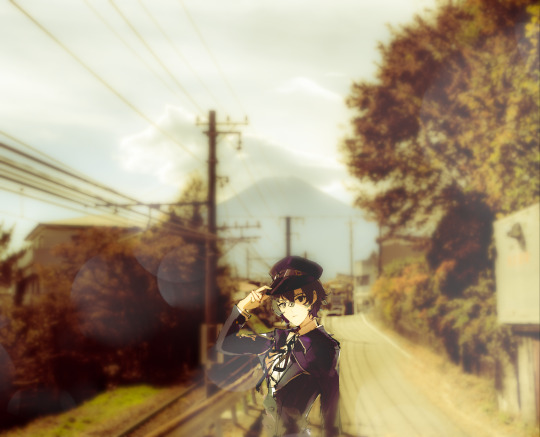

Edits I made with the pics I took in Fujiyoshida
I'll post the sources when I find them again
#persona#persona 4 golden#persona 4#naoto shirogane#persona 3#persona 3 reload#persona 3 portable#persona 3 fes#aigis#japan#fujiyoshida#mount fuji
25 notes
·
View notes
Photo
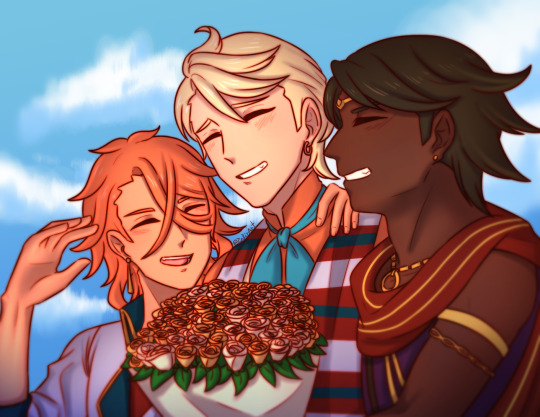
05/30 - HAPPY BIRTHDAY BUNET!
#fire emblem#fire emblem engage#fe engage#fe17#fire emblem fanart#fe fanart#bunet#pandreo#fogado#it's his bday in japan already so YEETS IT HERE#i love him sm man.
141 notes
·
View notes
Text
my most annoying trait as a feeder series watcher has to be that i want my faves off the ladder at the soonest opportunity
#i see a child f3 or lower and am already thinking about where they'd fit in sportscars or fe or stateside or japan LMFAOOOOO#m
3 notes
·
View notes
Text
Started reading chapter 2 of the FE2 novelization book 2, and I am NOT okay.
Details are under the cut, if you want to avoid being spoiled about exactly how the FE2 novel depicts the game's events.
So this chapter starts, all gas no breaks, with the introduction of Luthier and Delthea.
Luthier meets Clive and Clair, and quickly becomes jealous of the close older brother / younger sister bond they have, because he is on Zofia's side, and Delthea is on Rigel's side, forcing them to be enemies.
Before I know it, the two are fighting 1-on-1 to the death. With Delthea's raw magic talent greater than Luthier's, it's almost no contest, and she quickly kills him.
Soon after, she snaps out of Tatarrah's control, only to see her brother's lifeless body in front of her. She vows to avenge him, and demands to know the name of his killer. No one in Alm's army has the heart to tell her the truth.
...I don't think Luthier knew Delthea was possessed. (I skimmed some chunks of the text a little too quickly, won't confirm this for sure until I translate these pages fully.)
Meanwhile, Clair is also having an existential crisis, wondering if she is a lucky one in a million to have a close bond with Clive. Thinking maybe siblings hating each other is the norm and not the exception. She also feels that she will feel guilty her entire life, for not being able to do more to stop Luthier and Delthea's fight before it ended in tragedy.
When Silque learns what happened, as one of the few people who knows Alm and Rudolf's true connection, she suffers in her own way that she must keep secret, knowing that this is not the last time she will witness two people of the same family fight to the death. This also conveys why Ozaki-sensei chose a tragic telling of Delthea and Luthier's story - it is a parallel of events to come.
...My heart can't take any more, and we aren't even anywhere near close to the climax... Ozaki-sensei is too good of a writer. He knew how to even further heighten the emotional impacts of this tragic story.
#fire emblem#fire emblem 2#fe#fe2#fe15#fire emblem 15#fire emblem echoes#shadows of valentia#fe echoes#delthea#luthier#famicom#nes#nintendo entertainment system#japan#japanese#light novel#fe2 novelization translation
13 notes
·
View notes
Text

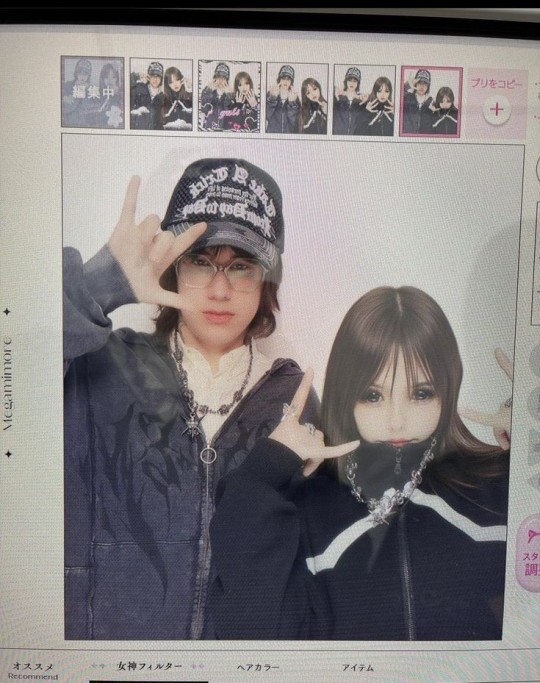

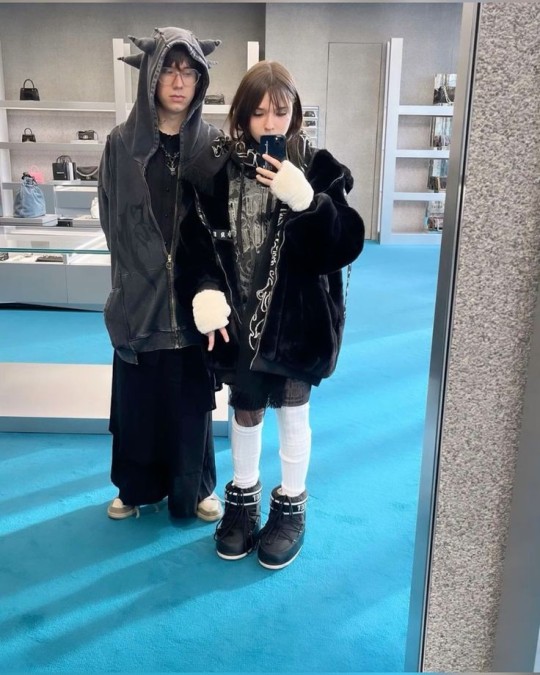
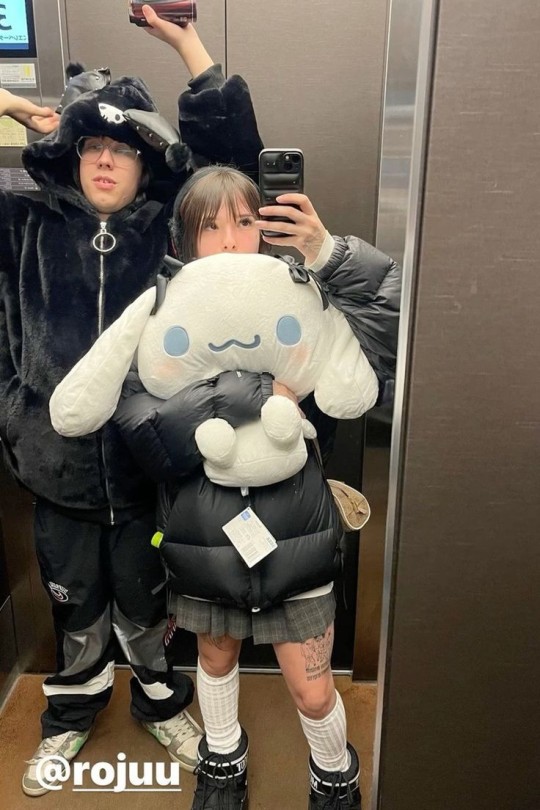
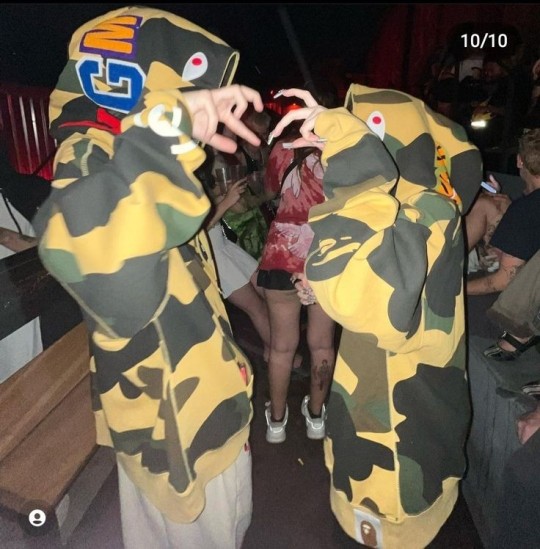

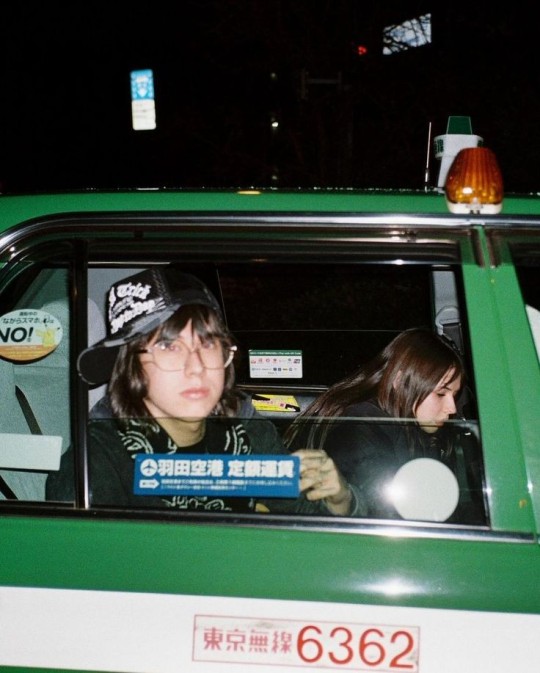
#saramalacara#saramalacara:(#sarito#fe digital#heraldica#hyperpop#iglesia#inteligencia artificial#ripgang#trap#rojuu#robots#badfacesara#stars#goat aura#trap argentino#hatsune miku#japan
89 notes
·
View notes
Text
Full Henry (Fire Emblem Awakening) Personality & Support Conversation Analysis Post - English Localization vs. Original Japanese
So a while back I stated I wouldn't be doing full character support convo analyses any more because they are very time consuming, but... well, I can't help myself. They're just too much fun. And Henry himself is just too much fun, too.
The Olivia / Henry's support chain got several translations and conversations about it in the early years of Awakening's release, but I don't think I have ever heard much about any of Henry's other support convo chains. So how do their localized versions stack up to the original Japanese? Let's walk through his entire support convo list and find out!
This post will be a discussion of select snippets of Henry's support conversations - whatever I want to point out. For balance, sometimes, that will be sections changed from the Japanese, and other times, sections translated pretty closely.
Since I will only be covering bits and pieces here, if there's any support chains you would like to see translated in full, please send a request to my inbox! Support convo translations are usually pretty easy for me, and a great way to add more activity to my blog between novel translations uploads, so I love getting them.
Henry / Robin
Henry / Robin just has minor changes. "Minor localization changes," as I define them, are when the localization team adds or takes away small bits of dialogue, in a way that does not change the overall theme, tone, chain of events, etc. of the conversation.
Discussing minor changes doesn't make for much conversation, but it's fascinating to see how localization teams "spice up" video game dialogues to make them more fun to read in English, and analyze how well the succeeded in fulfilling that goal.
(Also, when talking about Robin as a general character and not the female / male incarnation specifically, I use "they/them" pronouns.)
C Support
Eng. NA Localization:
Robin: Ugh! D-don't wave that thing in my face! I don't want it anywhere near me.
Original Japanese:
[ルフレ]いいよ!(Robin: That's fine!) 僕は遠慮しておくよ!▼ (I'll pass!)
In this example, the localization added to what Robin says. There's no indication in the Japanese that Henry waves the Risen arm in their face. But the same basic flow of events is present in the conversation: Henry is experimenting with Risen -> propositions Robin to join in his experiments -> Robin flatly refuses. This is a great example of a minor change. It follows the events and tone of the Japanese support, while further showcasing the morbid humor Henry is displaying here.
B Support
Eng. NA Localization:
Henry: If I get it to work, we can have them all fight on our behalf! Then we can sip tea for the rest of the war and collect the accolades once it's over. Robin: Well I understand the idea in theory. It could reduce casualties on our side... But there is one slight problem... Have you given any thought to how you'll control these soulless warriors?
Original Japanese:
[ヘンリー]これを使えば戦いを屍兵に任せて、(Henry: If we use this, then we'll leave the battle to the Risen,) 僕たちはお茶でも飲んでいられるよ~。▼(and we can even drink tea~.) そしたら戦死者も出なくなるし、(Then, we will have no casualties, and) いろいろと便利だよね~。▼ (they'll be convenient in many ways~.) [ルフレ]うーん…いくら戦死者が出ないといっても、(Robin: Umm... even if we won't have any casualties,) 屍兵の力を借りるのは…▼ (Borrowing the Risen's powers is...) それに、召喚した屍兵を (And the summoned Risen,) 操ることができるとは限らないよね?▼ (we won't necessarily be able to control them, right?)
Here's a change that's even smaller than the previous one, really. Robin doesn't say directly that the Risen are soulless in the Japanese, just summoned.
Henry / Lissa
S Support
Eng. NA Localization:
Henry: Hey-o! Need your human pillow again?
Original Japanese:
[ヘンリー]あ、リズ。こんにちは~。(Henry: Ah, Lissa! Hello~.) 今日も枕が必要?▼ (Do you need a pillow again today?)
As you will continue to see going forward, sometimes what surprises me about localization Henry is how little he was changed! What I mean is, I thought something as goofy as Henry calling himself a pillow would have been some silly fluff the localization added, but nope! He does indeed refer to himself as a pillow in the Japanese too.
Henry / Frederick
C Support
Eng. NA Localization:
Henry: Okay, fine! Geez, careful not to twist your smallclothes there...
Original Japanese:
[ヘンリー]は~い。ごめんなさ~い。▼(Henry: Understooood. I'm sorrrry.)
The English changed the Japanese line here, but I think it was necessary - without the nuance of the Japanese tilde (~), I think it's not as obvious that Henry is being sarcastic. So the localization added a sarcastic joke to bridge that gap. (Also, get ready to see the tilde A LOT going forward in Henry's Japanese text!!)
that Also, this is a bit off topic, but fun to point out anyway. If you ever hear anyone say Japanese has no sarcasm, you have some good proof of the contrary now. Japanese Henry can be quite sarcastic too! It's a common claim that Japanese has no sarcasm, because they don't use it anywhere near as much as English speakers use. But in actuality, Japanese speakers just don't utilize it in the exact same ways English speakers do!!
Now back on topic! :)
B Support
Snippet No. 1:
Eng. NA Localization:
Frederick: Because I know that anything can happen on the battlefield. I do not want my dying thought to be "if only I had trained a little harder." Henry: I want my dying thought to be about blood! ...Or maybe ichor.
Original Japanese:
[ヘンリー]ふ~ん。▼ (Oh, really~?)
Snippet No. 2:
Eng. NA Localization:
Henry: Whoa, easy there, Frederick! You're bruising my arm! ...Oooo, look at the colors!
Original Japanese:
[ヘンリー]ちょ、ちょっと~…▼(H-Hey~...)
We see the tilde again! I'll explain it in proper detail this time.
In short, Japanese video game dialogue uses the tilde A LOT to convey the tone of a character's speech.
I find that it can be used very broadly, and in a number of situations. Humor is the number 1 situation though, I think. It is used when characters are joking or sarcastic; or when characters are speaking in a lighthearted, happy, or whimsical tone. You'll also see it when a character is speaking in a sing-song voice, or just actually singing (See: a character like Engage's Timerra!).
In the case of Henry, we can understand in the Japanese thanks to the tilde that he is always joking around, being sarcastic, having fun with everything, lighthearted and never serious, etc. etc..
However... there's no singular symbol that can cover all of that tone in English! I mean, I do think dialogue could use the ~ and some people would get it, but I certainly don't think it is standardized enough to rely on in a video game released to a mass audience.
So what was the English localization to do? Well, a lot of the time, word choice and laughter alone can get Henry's meaning across just as well on its own. ...But it can't always be that straightforward. This is where I think it was obsoletely necessary for the localization to add jokes to Henry's dialogue to maintain the same meaning and tone as the Japanese. The above two samples I pulled from the Henry / Frederick supports are great examples of that. They help get the point across about just how much Henry jokes around, and how sarcastic he is.
That's all I have to say about the tilde for now, as I'm sure it won't be the last time I point one out in Henry's conversations. :)
Henry / Sully
B Support
Eng. NA Localization:
Henry: That's 'cause you WERE! ...You totally still had five or six solid minutes left, though.
Original Japanese:
[ヘンリー]そうだね~。あと数刻もすれば (Henry: It was, wasn't it? After a bit longer,) 死んじゃってたと思うよ~。▼ (you would have died, I think~.)
Again, wow, it really surprises me what lines are very direct from the Japanese sometimes! Henry really just is that morbid, and candid about death!
A Support
Eng. NA Localization:
Henry: I can't remember BEING upset. Folks here are so nice, and even bad guys are pretty great when they splatter. When life gives ya lemons, use 'em to ward off scurvy. That's what I say!
Original Japanese:
[ヘンリー]僕は怒らないよ~。▼ (I don't get mad~.) 怒るほど嫌なことを (And something so bad it makes me mad) 人にされることも滅多に無いし~。▼ (people hardly ever do to me~.) 大抵のことは笑って済ませられるよ~。▼ (I end most things with a laugh~.)
Even in a case like this, where the localization was a bit more liberal, Henry's tone still didn't change much. "When life gives you lemons" and "I end most things with a laugh~" can boil down to a same sort of connotation. Again, the localization is playing up Henry's humor and morbid optimism to fully get it across, in the absence of the Japanese tilde.
Henry / Miriel
C Support
Eng. NA Localization:
Henry: You always have to know exactly how things work, huh? Want a demonstration? I could turn Robin into a toad or something. Miriel: No. The experiment is not of such import that our comrades need be imperiled. Henry: But it wouldn't be forever! Just a few days at the most. Miriel: If we were suddenly called to battle, a toad tactician would be most disadvantageous. Henry: Oh yeah. I hadn't thought about that. Well, maybe I could cast a different kind of hex. Miriel: So long as the risk is within acceptable parameters.
Original Japanese:
[ヘンリー]仕組み? あはは、(Henry: How they work? Ah ha ha, 勉強熱心だな~、ミリエルは。▼ (you're so passionate about your studies, Miriel~!) じゃあちょっと見本を見せるから (In that case, I'll show you a small example, so) そのへんの誰かを呪ってみる��~?▼ (I'll try cursing someone around here, alright~?) [ミリエル]その辺の誰か・・・? (Miriel: Someone around here...?) 味方を呪い殺すおつもりですか?▼ (Do you intend to cast a deadly curse on an ally?) [ヘンリー]あ、ダメだった~?▼ (Henry: Oh, would you not like that~?) [ミリエル]えぇ・・・。戦力が減るのは (Miriel: Um... A decrease in our forces) 軍にとって良くないことですから・・・。▼ (would not be good for our army...) [ヘンリー]そっか~。じゃあ死なない呪いにするよ。(Henry: I see~. Then I'll pick a curse that won't kill them!) それならいいでしょ~?▼ (That will be okay, right~?) [ミリエル]はい、そういうことなら・・・ (Miriel: Yes. If that is the case,) じっくりと観察させていただきます。▼ (then allow me to observe carefully.)
Henry decides to target poor Robin specifically in the localization, but otherwise, the support chain has no significant changes.
Henry / Sumia
C Support
Eng. NA Localization:
Henry: Nya ha ha! Looked at all the smashed crockery! That's hilarious!
Original Japanese:
[ヘンリー]ほんとだ、すご~い。全部粉々だね~。▼ (Henry: You're right, woooow! They're all in pieces, aren't they?)
Another example of how the English made up for the lack of the tilde's Japanese connotation - Henry just outright says he finds the current situation hilarious.
Henry / Ricken
B Support
Eng. NA Localization:
Henry: Oh! And Campari used to make little birdhouses for homeless—
Original Japanese:
[ヘンリー]あと、ポモドーロ様はね…▼ (Henry: After them there was Campari...)
In another one of Henry's stand-out support conversations, in the Japanese, he stops before sharing what made Campari such a great guy, but otherwise the conversation is overwhelmingly the same as in JP.
A Support
Eng. NA Localization:
Henry: Judging by your expression, I'd say it's a serious one. Nya ha ha!
Original Japanese:
[ヘンリー]うん、いいよ~。(Henry: Yeah, that's fine~.) そんなに真剣な顔してどうしたの~?▼ (Why are you making such a serious face?)
Another great little example of how the localization made up for the lack of tilde - in place of the tilde, to convey that he is joking around, the localization has Henry laugh out loud.
Henry / Maribelle
C Support
Eng. NA Localization:
Henry: I'm not feigning anything. I'm just really in touch with the natural world. I can talk to any living thing you want. Trees. Flowers. Maggots. Ooooooh... Maaaggots... Maribelle: That is a remarkable talent, if a shade disturbing.
Original Japanese:
[ヘンリー]合わせてなんかないよ~。▼ (I'm not feigning, or anything of the sort~.) 僕はねぇ、自然に満ちている あらゆるものと会話できるんだよ~。▼ (You see, I can talk to all things filled with nature~.) [マリアベル]そ、そうですの…。(Maribelle: C-Can you...) 本当なら、すごいことですわね…。▼ (If that's true, then it is remarkable, indeed...)
The localization added in Henry's little pause on the word "maggots," (and added in the word "maggot" to begin with) but otherwise, this is another rather directly translated support chain.
Henry / Panne
C Support
Eng. NA Localization:
Panne: THAT was your reason?!
Original Japanese:
[ベルベット]…呆れたわ。(Panne: ...I'm astounded.) そんな理由なの…?▼ (Your reason was one such as that...?) 人間は理解しがたいけど、(Humans are difficult to understand, but) あなたは中でも極めつけよ。▼ (you are especially so.)
This exchange from Panne at the end of the C Support was actually longer in the Japanese. I don't see any particular stand-out reason why this is. Perhaps it was even an error, and the localization accidentally left out some of the text.
S Support
Eng. NA Localization:
Panne: We're too alike, you and I. We both lost our families and lived alone too long. But no more. I accept your ring. From now on, we are each other's family.
Original Japanese:
[ベルベット]あなたは似てるの。(Panne: You are like him.) 人間に殺された、私の弟に…▼ (My younger brother, who was killed by humans.) いいわ、受け取らせてもらう。(I will accept your ring.) あなたのそばにいてあげる、ヘンリー。▼ (I will be by your side, Henry.) これからは、私たちは家族よ。▼ (From now on, we are family.)
In the Japanese, Panne does not compare Henry to herself, but to her brother. Her brother is removed entirely in the localization, which at first seems like a pretty big deal. Perhaps it is because he is never mentioned again? It is odd that her sibling (who would seem important to her) is such a throwaway character in this one line of her supports with Henry.
Henry / Cordelia
C Support
Eng. NA Localization:
Henry: Ooooooooooooooooooooooooooh. Say, what if the wife was dead? Could you give it to him then?
Original Japanese:
[ヘンリー]ふーん…よくわかんないなあ。(Henry: Huh... I don't really get it.) 奥様がいると襟巻きが渡せないんだ。▼ (He has a wife, so you can't give him the scarf.) じゃあ、奥様が死んじゃったら (So, if his wife was dead,) 渡せるようになるの?▼ (would you be able to give it to him then?)
Here's another example I included not because it's changed from the Japanese - but because I was surprised to see this confirmation that Henry really is this morbid in the Japanese as well!
A Support
Eng. NA Localization:
Henry: I asked Lissa for advice, and she told me to take you on a big shopping trip. She said a few hours trying on dresses and armor would fix that broken heart, pronto! (skip a few lines) Henry: Then how about some comfort food? Fruit pies and cream? Candy apples? Macaroni and cheese with fried boar crisps and crumbled horse—
Original Japanese:
[ヘンリー]リズから聞いたんだ~。(Henry: I asked Lissa~.) 女の子の胸が苦しい時は、▼ (When a girl's heart hurts,) 買い���したりやけ食いしたりすると (things like shopping, or eating a lot) 治るんだって~。▼ (will cure it!) (skip a few lines) [ヘンリー]そうなんだ~。(Henry: I understand~.) じゃあ、やけ食いの方が好き?▼ (So you like overeating more?)
In the Japanese, Lissa's advice to Henry includes not only retail therapy, but also... overeating / binge eating. That's an understandably sensitive topic for the localization team to dodge.
It's true the localization does have Henry propose some comfort food food at the end of the convo... but I think Henry asking if Cordelia wants to eat a treat or two is different than proposing she full-on binge eats.
Henry / Nowi
C Support
Eng. NA Localization:
Nowi: No! I'm an adult woman who's more than a thousand years older than you! Henry: Oh, right! Nya ha ha! Sorry, short stuff!
Original Japanese:
[ノノ]ノノは子どもじゃないもん。(Nowi: Nowi's not a child!) 千年以上生きてる大人の女なんだから!▼ (Because Nowi is an adult woman who's lived for over 1,000 years!) [ヘンリー]あ、そうだったね。(Henry: Oh, that's right!) あはは、ごめんなさい、お姉さん。▼ (Ah ha ha, sorry, big sister!)
Ah, the 1,000 year old child-looking adult dragon. An FE classic.
But actually, the Japanese line was the same in this case! A young-looking character reiterating that they are totally an adult, isn't always an addition of the localization. (I say this because it was so in the main Fates script with Elise).
B Support
Eng. NA Localization:
Henry: Yep! They're probably quivering in fear under their beds and crying like babies. But no worries! There'll be more victim—er, that is, village kids—at our next camp. (skip a few lines) Henry: If they exchanged fire breath with you, they'd end up as little clumps of charcoal.
Original Japanese:
[ヘンリー]うん、たぶん無理だと思うよ~。▼(Henry: Yeah, I think it's probably no use~!) でも、いいじゃない。ほかの土地にも (But that's okay, isn't it? Because in other areas) 子どもはたくさんいるんだから。▼ (there's also lots of children.) (skip a few lines) [ヘンリー]うーん…僕には空を飛んだり (Henry: Hmm... I can't fly in the sky) ブレスを吹いたりできないしなぁ。▼ (or blow fire breath, or anything like that.)
Here, the localization added a bit to Henry's morbidity. In the Japanese, he didn't joke around and start to call the children he and Nowi played with victims, or go so far as to describe that her fire breath would turn them to charcoal.
While Henry is morbid and sarcastic in the Japanese, this is further proof that the localization did add in some extra. Which again, makes up for some of the gap left without the tilde ~ in English.
Henry / Tharja
C Support
Eng. NA Localization:
Henry: Sure! You want me to cast a death curse on someone? Tharja: Someone in camp? Mmm... No. That could be problematic. Henry: Hee hee! Yeah, I guess. Too bad, though. See, 'cause I've got one that makes blood come out your—
Original Japanese:
[ヘンリー]そうなんだ~。(Henry: Did you now~?) じゃ、ちょっと呪いあってみる~?▼ (Then shall I try casting a teensy-weensy curse on them?) [サーリャ]結構よ…。仲間同士で (Tharja: You don't have to...) 潰し合っても、不毛なだけだから…。▼ (For allies to kill each other, would be meaningless...) [ヘンリー]あはは、それは残念だな~。▼ (Henry: Ah ha ha, that's too bad~.)
The morbid joke about exactly what kind of curse Henry wants to try out - one that involves making blood come out from... somewhere - was a small add-on in the localization. This chunk of the exchange otherwise follows the Japanese.
Eng. NA Localization:
Tharja: Ugh... Hale? Hearty? Have you no respect for our ancient profession? We're supposed to be harbingers of pestilence and famine and doom! Henry: Mm... I love doom.
Original Japanese:
[サーリャ]健全で純真ですって…?(Tharja: Healthy...? Pure...?) …呪いを使う者が、よく言う…。▼(...Well said for a spellcaster of curses...) …まぁいいわ…くれぐれも (...Whatever... don't keep) おかしな真似はしないことね。▼ (acting weird, alright?) [ヘンリー]は~い。▼ (Henry: Okaaaaaay.)
The exact ending of the C Support is ever so slightly different. In both, Tharja basically says to Henry to act more like a dark mage, but the little joke about "doom" was added.
B Support
Eng. NA Localization:
Henry: Hello, Tharja! Tharja: *Mumble, mumble* *hiss* Henry: Heey! Did you just put a curse on me? Tharja: Yes, Now, if you do not speak the truth, you will DIE! Answer me clearly and without hesitation. Are you a foreign spy? Henry: Nope! Not me! Although I do own a cloak and a couple daggers. Tharja: Who do you serve? Ylisse or Plegia? Henry: Aw, I don't get into politics. I just want to toss fireballs at bad guys.
Original Japanese:
[ヘンリー]…あれ? これって…。▼ (Henry: ...Huh? This is...) [サーリャ]…思ったよりあっさりかかったわね。▼ (Tharja: ...That was much easier than I thought it would be.) [ヘンリー]あ、やっぱりサーリャだ。(Henry: Ah, I knew it, it's you Tharja!) 僕に呪いをかけたね~?▼ (You cast a curse on me, didn't you?) [サーリャ]えぇ…これで私の前では (Tharja: Yes... Now, before me) 嘘や隠しごとはできないわよ…。▼ (you cannot lie or hide anything...) 正直に答えなさい… (Answer me honestly...) 貴方、誰かのスパイじゃないでしょうね…?▼ (You aren't anyone's spy, are you?) [ヘンリー]うん、スパイじゃないよ~。▼ (Henry: Nope, I'm not a spy~!) [サーリャ]じゃあ、貴方は…ペレジアと (Tharja: So you... between Plegia) イーリスと、どっちの味方…?▼ (And Ylisse, which are you an ally of...) [ヘンリー]ん~…味方とか、よくわかんないな~。(Henry: Hm~... I don't really know who's ally I am~.) 悪いと思った奴と戦うだけじゃダメなの?▼ (Is it wrong to just fight whoever I think is bad?)
A few little tweaks here. Tharja is in the middle of casting her curse in her first line in the localization, whereas in the Japanese, it was already over, and she was making a comment as to how easy it was to do. And then, Henry's quips were added onto a bit in localization.
A Support
Eng. NA Localization:
Henry: Hecka-necka, jimma-jamma, woozle-wazzle! Aaand presto! Curse dispelled! Actually not dispelled. I tossed it back at the original sender. Hee hee!
Original Japanese:
[ヘンリー]あ、それなら大丈夫だよ~。(Henry: Ah, if it's that, that's fine~.) 僕がもうはね返しておいたから~。▼ (Because I already bounced it back~.)
Henry's "chant" was added in localization. In the Japanese, by the time Henry says his line, he's already sent the curse back to its caster.
Eng. NA Localization:
Henry: Well, usually I disarm foes by removing their arms. But your way sounds impressive, too!
Original Japanese:
[ヘンリー]あはは、だから最初に言ったじゃない~。(Henry: Ah ha ha, that's what I said in the beginning, isn't it~?) 僕は健全で純真な心の持ち主だって。▼ (I have a healthy and pure heart.) でも、嬉しいなぁ~、(But I'm happy~.) サーリャに褒めてもらえて~。▼ (I was complemented by you~.)
And the localization was just taking advantage of an opportunity to make a disarming pun here, it was not already in the Japanese.
Eng. NA Localization:
Henry: Wizard fight! Wizard fight! Yaaaaaay!
Original Japanese:
[ヘンリー]わぁ~。サーリャ、こわ~い。▼(Henry: Eeeeek~! Tharja is scaaaary~!)
In the Japanese, Henry doesn't get excited to have a wizard fight with Tharja, but he still does act pretty goofy by pretending to be scared of her.
S Support
Somehow, I don't have anything to add to this one! Henry really does run off to have an engagement ring made after Tharja says she will accept his proposal if he agrees to protect Robin.
Henry / Cherche
C Support
The C Support adds a number of little bits to Henry's dialogue, again just to play up his goofiness more, because English lacks a symbol like the Japanese tilde ~.
Eng. NA Localization:
Henry: Sure have! She's as cute as a button, that one. ...Well, if buttons were cute. We had wyverns in Plegia, you know, and also the occasional fell beast. But we didn't have a single wyvern that was as pretty as Minerva.
Original Japanese:
[ヘンリー]うん!(Henry: Yeah!) かわいいよね~、ミネルヴァ!▼ (Minerva sure is cute~!) ペレジアにも (In Plegia too,) ドラゴンナイトはいたけど、▼ (there were wyvern knights, but) この子くらいかわいい 飛竜はいなかったよ~!!▼ (There weren't any as cute as this wyvern~!)
There was no mention of buttons in the Japanese version, Henry just says Minerva is cute.
Eng. NA Localization:
Henry: Yep! I make four-legged friends wherever I go! And even some two-legged ones. I'm also pals with a three-legged bear, but that's a story for another time.
Original Japanese:
[ヘンリー]僕は自然と友達だから (Henry: I'm friends with nature, so) みんなと仲良しなんだよ~。▼ (I get along with all of them~.)
No mention of a three-legged bear friend in Japanese. Not that Japanese Henry wouldn't be excited to befriend a three-legged bear.
Eng. NA Localization:
Henry: Yowza! Sh-she tried to bite me! Look, I'm bleeding! Mmm, blood...
Original Japanese:
[ヘンリー]ひゃあっ! 噛まないで~!▼ (Henry: Hyaaah! Don't bite me~!)
And the localization added in the fact that Henry was bleeding, and excited to see it.
B Support
Eng. NA Localization:
Henry: Aw, it's fine. I bet I just give off some kind of animal aura. Or maybe she thought I was a big ham? I do smell kind of ham-like.
Original Japanese:
[ヘンリー]あはは、僕って (Henry: Ah ha ha, I) 獣っぽい気配がするみたい~。▼ (it seems I have an animal-like aura~.) だから獲物だと 勘違いしたのかもしれないね~。▼ (So maybe she mistook me for prey~.)
Henry doesn't propose that maybe he smells like ham, rather, in the Japanese, he thought that maybe Minerva mistook him for prey.
Eng. NA Localization:
Henry: Well, when I was young, my best friend in the entire world was a giant wolf. My parents ignored me most of the time, so that wolf became my whole family. Then one day she came to visit me, and some hunters in the village... They shot her full of arrows. Killed her on the spot.
Original Japanese:
[ヘンリー]うん! 実は、昔仲良しの狼がいたんだ。(Henry: Yeah! Actually, long ago, there was a wolf I was friends with.) 僕、親に放ったらかしにされてたから、▼ (I was neglected by my parents, so) 小さい頃の親友と言うか、(You could call them a friend I had when I was young,) ほとんど家族みたいなものだったんだけど~▼ (or something like family, but~) ある日その狼が僕に会いに来たとき、(One day, when they came to see me,) 周りにいた大人たちに殺されちゃって…。▼ (they were killed by the adults around us...)
In the Japanese, Henry doesn't refer to the wolf's killers as "hunters," but "adults."
Also, the Japanese doesn't hint at whether the wolf was male or female, so I went with neutral pronouns.
A Support
Eng. NA Localization:
Cherche: I'm very happy that you like Minerva and you two get along so well. But I think you need to spend more time with human friends—namely, me. So I'm going to carry out my patrol on foot, and you're coming with me.
Original Japanese:
[セルジュ]ミネルヴァちゃんと仲良くなってくれるのは (Cherche:) とっても嬉しいんだけど、▼ (I'm very happy that you've become friends with Minerva-chan, but) あなたは本当の意味で人と接することを もっと重ねるべきだと思う。▼ (I think you should have more experiences getting truly close to people.) 偵察は私たちふたりで行きましょう。(Let's go on patrol together.) 私、あなたともっと仲良くなりたいわ。▼ (I want to become better friends with you.)
The localization of the A support was a pretty straightforward translation of the Japanese for the most part, but this bit of Cherche's dialogue from near the end is subtly different.
I think the localization subtracts a little from the real meaning of what Cherche is trying to get across to Henry - it's not that he doesn't spend time with people, its that when he does, he doesn't form meaningful relationships with them. The exact nuance is different.
S Support
Eng. NA Localization:
Henry: I figured the old dogs would be barking, so I brought a homemade bunion salve. Cherche: Why, thank you, Henry! But how did you know? Henry: We've been on so many patrols together, I've memorized your whole routine. After this, you'll put a cold towel on your head and drink a cup of hot elderberry tea.
Original Japanese:
[ヘンリー]はい、これ。(Henry: This is for you.) 薬に漬けた湿布だよ~。▼ (A wet compress soaked in medicine~.) [セルジュ]あら、ありがとう。(Cherche: Oh my, thank you.) 脚が張っていたの、気づいてたの?▼ (You noticed that my legs are swollen?) [ヘンリー]うん。だって、あれから毎日 (Henry: Yup! After all, since then, every day) 二人で偵察に行ってたんだもん。▼ (we've gone on patrol together!) もうセルジュのことなら (If it's about you) なんでもわかるようになっちゃったよ~。▼ (then I already know everything there is to know~.)
Henry's treatments for Cherche after their patrol together were a bit different in Japanese.
The localization even added in elderberry tea when no mention of drinks was made before. Who on the team was such a fan of elderberry tea that it's the only tea anyone on the Awakening cast drinks? I'll always wonder.
Eng. NA Localization:
Cherche: Goodness, Henry, but this is sudden. However, I have found myself...thinking about you a lot lately. Ever since we met, I've wanted to know the real man behind that jolly facade. And this would be a chance to do just that. Very well, Henry, I accept your proposal!
Original Japanese:
[セルジュ]ふふ…やっとその笑顔を (Cherche: Tee hee...) 私にも向けてくれるようになったのね。▼ (You're finally in a place where you make that smile at me!) …私も、あなたが好きよ。(...I love you too.) 友達になりたいっていうのは嘘。▼ (It was a lie when I said that I wanted to be friends with you.) 本当はずっと、あなたの心が知りたい、(To be honest, I've always wanted to know your heart,) 誰よりも近くにいたいって思ってた。▼ (and to become closer to you than anyone else.) 毎日変わっていくあなたを… (You've been changing bit by bit every day...) これからも一番傍で見ていたいわ。▼ (I want to continue to see you at my side more than anyone else is.)
The localization left out the full extent of what Cherche was saying - that she's had romantic feelings for Henry for quite a long time before this conversation.
Henry / Olivia
So I saved Henry / Olivia for last and went a little out of recruitment order, because I remembered this conversation being pretty different in localization vs the Japanese. So I wanted to save "the big one" for last.
First, I want to point out that I did a full translation of this support chain several years ago now (*Checks post history* Wait... EIGHT years ago?! Dang!), so I don't really need to talk about specific lines. You can read and compare for yourself! I also posted the localized version below the Japanese in each post, so you you can save yourself an internet search.
C Support - B Support - A Support - S Support
Instead of discussing specifics, I'll just wrote some of my general thoughts in a few paragraphs.
In the C support, I think it's unfortunate that the localization downplayed Henry's original intentions for choosing to kill the dog. He does not try to fight the dog's death, if it is the only way to relieve its pain. If death is its fate, he accepts it. It's great nuance for his character, that I think was the highlight of the convo.
In the B support, I remembered thinking that the localization really changed this one, but that's not as true as I thought it was. In summary, Olivia thinks that Henry's sense of humor is a coping mechanism and his smiles aren't genuine. But Henry rejects that interpretation and says he just is who he is. That's same in both versions. The biggest change is to Henry's backstory at the "wizarding" school. Now that I look back on it, I actually see a good possibility as to why the localization chose to make this change. Saying that Henry experienced brutal pain and injuries because of "experiments gone wrong" still conveys that his teachers were terribly abusive - because healthy teachers would not be assigning magic training that could be so easily dangerous - but it isn't as graphic as "bad children were beaten senseless!" Child abuse is a pretty common trigger, so I get why the localization team would want to tweak this part of the convo a bit.
For the A and S supports, I don't have anything major to mention.
Also, throughout the entire support chain, Henry calls Olivia "crazy lady." I don't know exactly how I feel about this, because it feels a little out of place with the rest of his sense of morbid humor. But he does get a little sarcastic and sassy with people when they get on his nerves in any way - which Olivia very much is doing, by trying to say his outward personality is trauma coping and not genuine. So the more I think about it, the more I think it fits his personality fine.
So as my final conclusion, I can say that Henry / Olivia is the most changed of all Henry's supports in localization, but even then, that's only saying so much.
-----------------------------
And so, that's that! Generally speaking, Henry's conversations were pretty faithfully translated; with minor changes here and there, mostly to convey his sense of humor due to English's lack of the ~ tilde symbol used in dialogue. I only found a couple of more major changes, none of them particularly conversation-altering.
Henry's such a fun character to begin with that the localization team only had to make some subtle changes here and there to get his exact sense of humor and personality across, wherever it might have otherwise been lost in translation. And they did a pretty good job with that! Only a small selection of changes made me scratch my head a bit. Overall, good work all around.
Thanks for reading! :)
#fire emblem#fire emblem 13#fe13#awakening#fire emblem awakening#fe awakening#japan#japanese#support conversation#henry#henry fire emblem#support conversation analysis#translation#localization
54 notes
·
View notes
Text
松山あおい×ヤギヌマメイ 2マン TONDEMONAI IDOL FESTIVAL@新宿motion 2023/09/06
他の現場の話になるが体操服公演とうたってやっぱりブルマじゃなかった時の会場の冷えっぷりといったら
8 notes
·
View notes
Photo

24/05/2023 - A Day in The Life
26 notes
·
View notes
